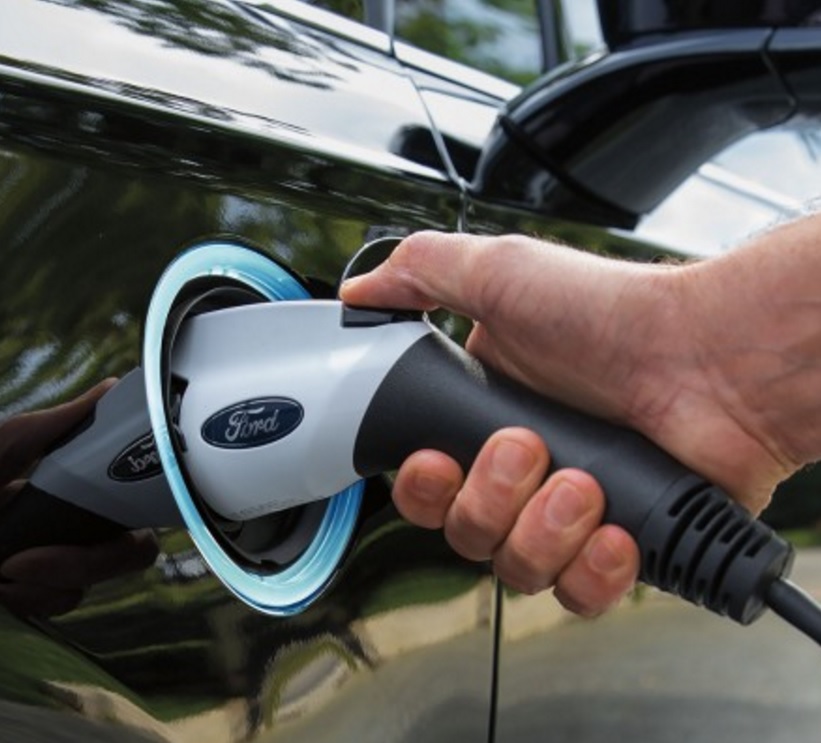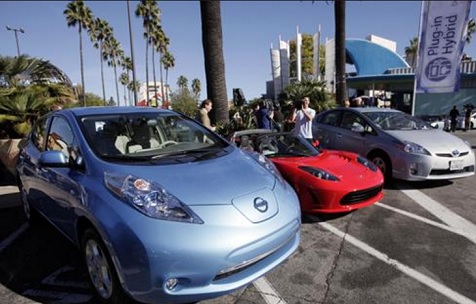EV charging report: Electric vehicle charging outlets have grown tenfold in the U.S. since 2011,  according to a new report from the Electric Vehicle Charging Association – from 5,070 in 2011 to 50,991 this year. As a business sector, the EV charging infrastructure increased 576% in revenue between 2011 and 2016 – from $27 million in 2011 to $182 million in 2016. Revenue could grow to the $276 million by 2020, and the association also forecasts that the industry globally could produce $45.59 million by 2025. As with electric vehicle sales, California has led the way in charging stations. The state’s infrastructure has grown 67% since the association’s first report in October 2015. California now about 15,930 charging outlets in place, not including residential outlets, according to the “State of the Charge” report.
according to a new report from the Electric Vehicle Charging Association – from 5,070 in 2011 to 50,991 this year. As a business sector, the EV charging infrastructure increased 576% in revenue between 2011 and 2016 – from $27 million in 2011 to $182 million in 2016. Revenue could grow to the $276 million by 2020, and the association also forecasts that the industry globally could produce $45.59 million by 2025. As with electric vehicle sales, California has led the way in charging stations. The state’s infrastructure has grown 67% since the association’s first report in October 2015. California now about 15,930 charging outlets in place, not including residential outlets, according to the “State of the Charge” report.
Diesel seeing more clean fuel competition: ExxonMobil and Renewable Energy Group (REG) have conducted research finding feasibility in biodiesel converted from a variety of biomass sources. The two companies were able to validate the feasibility of the REG Life Sciences fermentation technology across multiple cellulosic sugar compositions produced from a few non-edible biomass sources. The study confirmed REG Life Sciences technology is capable of achieving substantial reductions of full-lifecycle greenhouse gas emissions compared to traditional diesel fuel. “Biofuels today are made largely from food sources, such as corn and sugar cane,” said Vijay Swarup, vice president of research and development at ExxonMobil Research and Engineering Company. “ExxonMobil is challenging that paradigm by exploring a portfolio of large-scale biofuels solutions that do not compete with food and water.”
Electric beats diesel in study: A new study has looked into how clean electric vehicles can be based on what goes into generating the power and the impact of mining raw materials. The study finds  that even when the power is generated by coal power, it still emits fewer emissions that diesel cars. Those findings are especially relevant to the European market, where automakers are gradually reducing the volume of diesel passenger cars. Conducted by VUB university in Brussels for NGO Transport & Environment (T&E) the study analyzed data from several European markets. Dr. Maarten Messagie wrote in the study that there is room for improvement on the battery manufacturing side to reduce the environmental impact, but clean energy sources have the greater impact. As in the U.S. and other countries, those emissions improvements are expected to increase as utilities add more renewable energy generation.
that even when the power is generated by coal power, it still emits fewer emissions that diesel cars. Those findings are especially relevant to the European market, where automakers are gradually reducing the volume of diesel passenger cars. Conducted by VUB university in Brussels for NGO Transport & Environment (T&E) the study analyzed data from several European markets. Dr. Maarten Messagie wrote in the study that there is room for improvement on the battery manufacturing side to reduce the environmental impact, but clean energy sources have the greater impact. As in the U.S. and other countries, those emissions improvements are expected to increase as utilities add more renewable energy generation.



